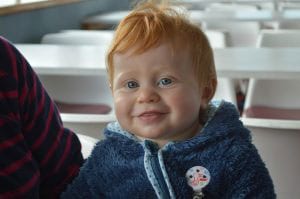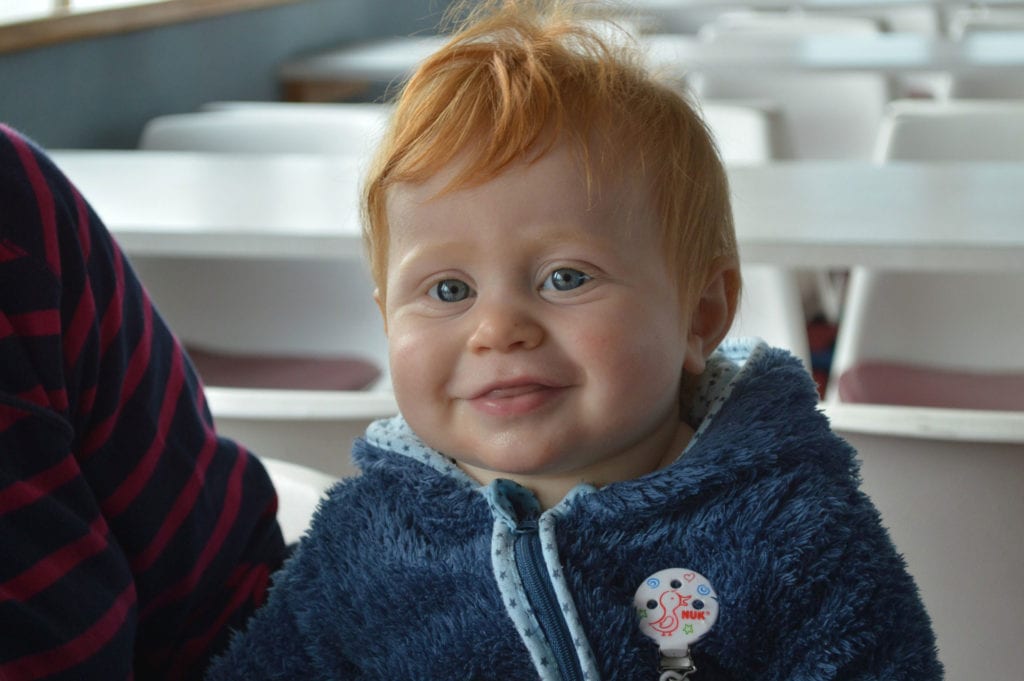Serendipity (n): the occurrence and development of events by chance in a happy or beneficial way.
As many of you probably know, the journey to a cystinosis diagnosis is no walk in the park. In fact, as reported by FOX News, Mary Jordan and Jessica DeDio, both mothers of sons with cystinosis, can recall sleepless nights, disbelieving doctors, and frequent hospital visits. It’s no wonder they became fast friends, when in 2010, their boys, Joey and Bailey respectively, entered a research study at Stanford to measure the effectiveness of the new drug now known as PROCYSBI.
 As you might not know, most cystinosis patients have blonde hair and blue eyes. Not so for Joey and Bailey. Both sporting a “red head,” they gravitated toward each other, becoming even closer whilst bonding over shared interests. Some might say the union of the Jordan and DeDio families was meant to be.
As you might not know, most cystinosis patients have blonde hair and blue eyes. Not so for Joey and Bailey. Both sporting a “red head,” they gravitated toward each other, becoming even closer whilst bonding over shared interests. Some might say the union of the Jordan and DeDio families was meant to be.
Cystinosis isn’t one of those diseases one can expect to easily manage your whole life long. Cystinosis does not play fair. In patients with cystinosis, the amino acid, cysteine, fails to be recycled back into the bloodstream, thus leading to a buildup in certain organs, specifically the kidneys and eyes. This can lead to complications, the worst being kidney failure. For many people with cystinosis, kidney failure is inevitable, meaning all will eventually need a transplant.
Jessica always planned to be the donor for her son. She would gladly give up a kidney if it ensured Bailey would live.
In fact, she had taken extra care of her body to prepare for the day. That day came in November 2013. But, to her dismay, Jessica learned her kidneys were not suitable for the transplant. Despite her begging and pleading, she would not be the one to save her son.
In desperation, Jessica reached out to Mary for reassurance. Her son, Joey, had undergone a kidney transplant only months earlier, having received a new kidney from a deceased donor. Mary listened intently to her good friend’s worries and concerns, and then said, very simply, “I’ll do it.” She would give Bailey a kidney.
Jessica remembers getting immediate chill bumps.
And you thought remembering your best friend’s birthday was impressive.
On Bailey’s 16th birthday, Jessica told her son the good news. “I know it meant the world to him, ” said Jessica. “He was so relieved…”
The transplant was a success. Jessica recalls visiting Mary after the surgery. “Her face looked like an angel.”
Today, Bailey, at 17, has discovered a passion for mechanics. Whether it’s a dirt bike or a lawnmower, he’s always fixing something. Joey has started his first year of college and plans to get a degree in computer sciences. And now that PROCYSBI, the drug which Joey and Bailey took during the clinical trial in 2010, has been FDA-approved, the two boys can hope for a longer and happier life managing cystinosis–as long as they stay compliant.
Compared to early treatments, PROCYSBI boasts less side effects and a pill regimen of only twice daily–half the amount of its predecessor, Cystagon. For cystinosis patients around the world, this new medication was a God-send.
Jessica DeDio could say the same of her friend, Mary–a God-send, a serendipitous gift, bestowed upon her for a reason. Could it be fate? Coincidence? Happenstance? Whatever you want to call it, there’s nothing more pure than love and hope.





